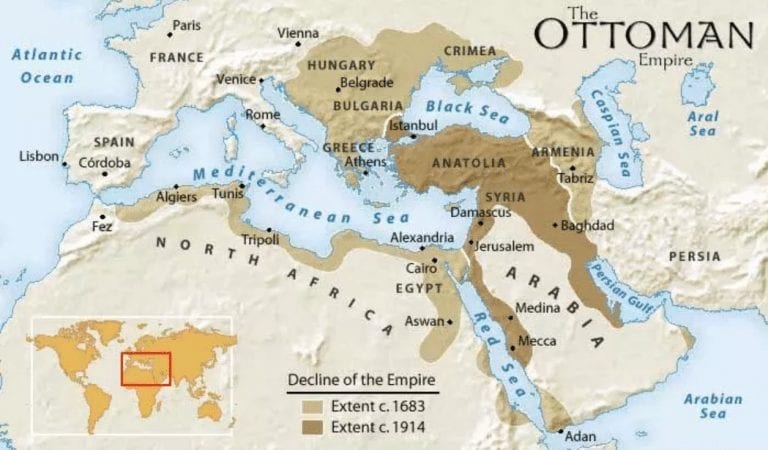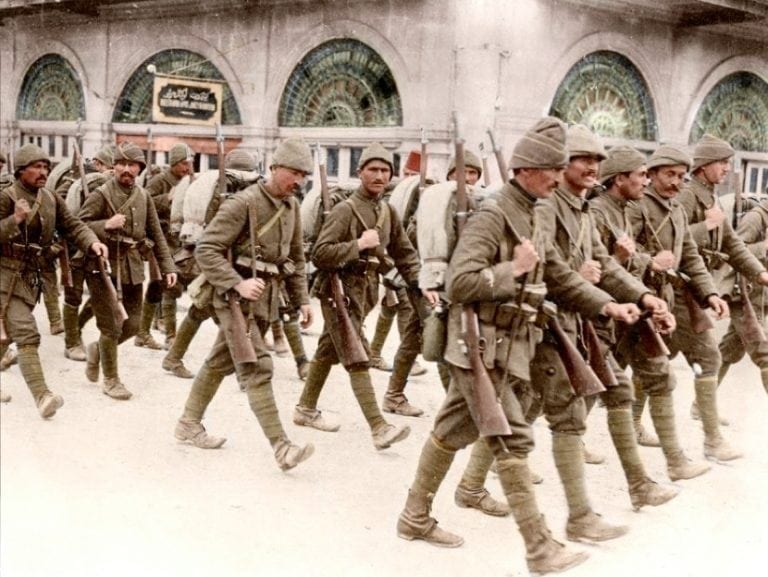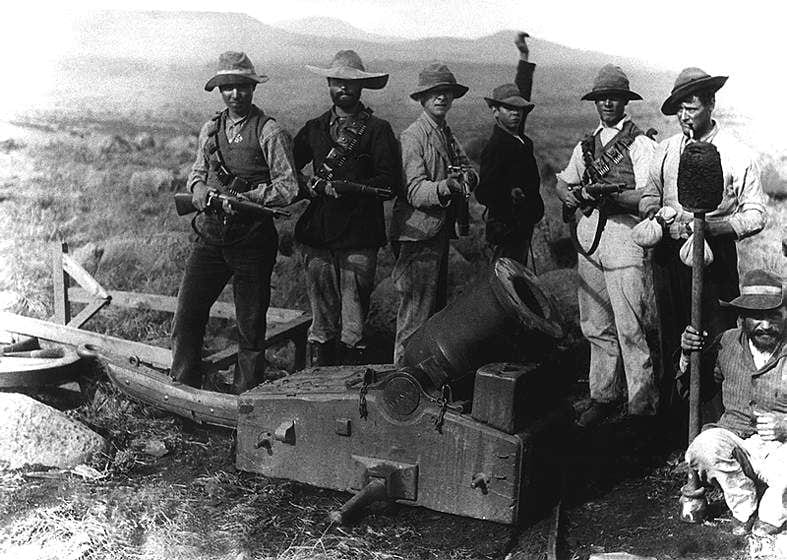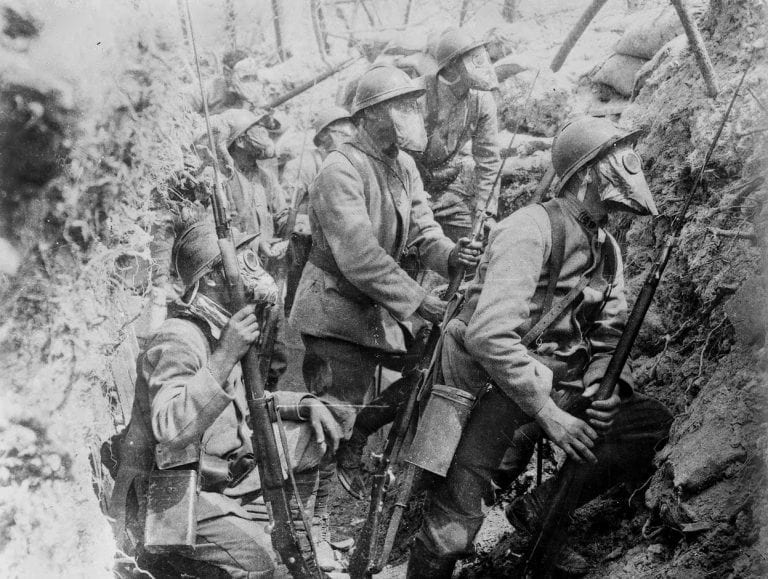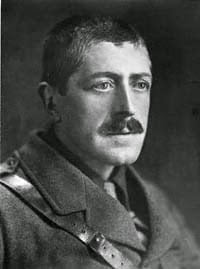MAKE SURE YOU CIRCULATE THESE MATERIALS! BREAKING THE EMPIRE'S PROPAGANDA MACHINE DEPENDS ON YOU.

April 10, 2018
Donald Trump is preparing to ignite the Middle East and move the world a big step closer to total war. There is a very good chance the corporate mainstream media, accomplices in massive war crimes, will be announcing “breaking news” this evening or night that the U.S., in conjunction with its evil twin Israel that bombed a Syrian air base 24 hours ago, has launched a massive attack on Syria “justified” by a false flag chemical attack on Saturday. That such an expanded and terribly dangerous escalation of the war against Syria, whose ultimate goal is Iran and Russia, should come as no surprise to anyone halfway sentient. Open source intelligence has been available for at least 6 weeks that the world is facing a momentous point of no return unless somehow, against all odds, sane voices miraculously intervene to stop this push for world war, which could very well end with nuclear war. But don’t count on it.
I am sick at heart at the thought of what is coming. When will we ever learn? What follows were warnings shouted out in the only places – alternative media sites devoted to truth – that care to prevent such carnage. Imagine your own continuing timeline, if you can bear to do so. Somehow, some way, we must find ways to awake those Americans asleep to the evils conjured up by their own government before it is too late. I really don’t know how, but can’t resign myself to giving up, for if I do, I give up on humanity, the “humanity” Trump says so glibly is at stake as he prepares to shed more blood.
February 21, 2018
The Trump and Netanyahu governments have a problem: How to start a greatly expanded Middle-Eastern war without having a justifiable reason for one. No doubt they are working hard to solve this urgent problem. If they can’t find a “justification” (which they can’t), they will have to create one (which they will). Or perhaps they will find what they have already created. Whatever the solution, we should feel confident that they are not sitting on their hands. History teaches those who care to learn that when aggressors place a gun on the wall in the first act of their play, it must go off in the final act.
These sinister players have signaled us quite clearly what they have in store. All signs point toward an upcoming large-scale Israeli/U.S. attack on Lebanon and Syria, and all the sycophantic mainstream media are in the kitchen prepping for the feast. Russia and Iran are the main course, with Lebanon and Syria, who will be devoured first, as the hors d’oeuvres. As always, the media play along as if they don’t yet know what’s coming. Everyone in the know knows what is, just not exactly when. And the media wait with baited breath as they count down to the dramatic moment when they can report the incident that will compel the “innocent” to attack the “guilty.”
March 1, 2018
Last week I wrote that “all signs point toward an upcoming large-scale Israeli/U.S. attack on Lebanon and Syria, and all the sycophantic mainstream media are in the kitchen prepping for the feast. Russia and Iran are the main course, with Lebanon and Syria, who will be devoured first, as the hors d’oeuvres.” Those signs are growing more numerous by the day.
Israel’s mainstream newspapers, Haaretz, and the more conservative Jerusalem Post, both announce in headline news that Iran has built a new base in Syria with missiles capable of hitting Israel. One look at these newspapers with their talk of Israeli war preparations and the potential in assassinating the Hezbollah leader Hassan Nasrallah makes it very clear that an expanded Middle Eastern war is fast approaching. Russia, Syria, and Iran are being demonized as mind control propaganda spews forth. The mainstream corporate media in the United States and other countries are sure to follow.
March 14, 2018
Donald Trump’s days of playing the passive/aggressive host of a reality-television game show are coming to an end. Either he fires all the apprentices who might slightly hesitate to wage a much larger world war and lets the bombs fly, or he will be replaced by one who will. Signs are that he has learned what his job entails and the world will suffer more death and destruction as a result.
Now we have the British Prime Minister Theresa May accusing Russia of poisoning in England the double-agent Sergei Skripal and threatening Russia to give a “credible” explanation why they killed this man or else, a man who sold the identities of Russian agents to the UK for cash, putting them in serious danger. Or else, she says, the UK “will conclude that this action amounts to an unlawful use of force by the Russian state against the United Kingdom.”
Naturally she presented no evidence for Russian involvement, but the BBC, as is its wont, speculates on how the British may punish Russia, and the other corporate media chime in. But we are left to wonder where this is leading. Could it be Syria? Former British diplomat Craig Murray suggests it could be a false-flag setup aimed at raising Russiaphobia to hysterical proportions. But to what end?
If we look to the United Nations and the accusations and threats flying from the mouth of the US Ambassador Nikki Haley, Obama’s UN Ambassador Samantha Power’s doppelganger in war lust, we see that the picture expands. Haley threatened that the US will take unilateral action in Syria against Syrian and Russian forces if the UN didn’t adopt her resolution that would have allowed anti-government terrorists plenty of time to escape from East Ghouta. She said, echoing words we have heard numerous times:
It is not the path we prefer, but it a path we have demonstrated we will take, and we are prepared to take again….When the international community fails to act, there are a Times when states are compelled to take their own action.
In response we have the Russian Foreign Minister Sergey Lavrov warning that another US strike on Syrian government forces would have serious consequences. And the Chief of the Russian General Staff Valery Gerasimov saying,
We have reliable information about militants preparing to falsify a government chemical attack against civilians. In several districts of Eastern Ghouta, a crowd was assembled with women, children, and old people, brought from other regions, who were to represent the victims of the chemical incident.
He added that “White Helmets” activists (proven to be financed by the US and UK) had already arrived at the scene with satellite video transmitters ready to film the scene and that the Russians had discovered a “laboratory for the production of chemical weapons in the village of Aftris which was liberated from terrorists.” After the planned false-flag attack, the US was going to bomb government held districts in Damascus fulfilling Haley’s threat.
And here in the US, Col. Lawrence Wilkinson, who was Secretary of State Colin Powell’s chief of staff when Powell lied at the UN in 2003 to garner support for the criminal attack on Iraq, spoke to The Israel Lobby and American Policy 2018 conference ten days ago and said, speaking of Israeli Prime Minister Netanyahu and Defense Minister Avigdor Lieberman, that:
They’re both headed for war. Of that I’m convinced. They will use Iran’s allegedly existential (sic) to Israel presence in Syria which is becoming even more so from a military perspective every day, Hezbollah’s accumulation of some 150,000 missiles if we believe our intelligence agencies. The need to set Lebanon’s economy back yet again, that’s important. Look at what they’re deliberating right now with regard to the new very, very rich gas find in the Eastern Mediterranean with Israel claiming Section 9 and Lebanon claiming Section 9. Take that, Lebanon. We’re going to bomb you, then you’ll let us have it. And that will be their excuse.
Now Rex Tillerson is out as Secretary of State and the head of the CIA, the far more war minded Mike Pompeo slides naturally into the role. Musical chairs for the power elite. As Trump has said of Pompeo,
“We are on the same wavelength.”
Riding that same wavelength is Nikki Haley, a trio whose alliance bodes very poorly for Middle Eastern peace or for any rapprochement with Russia. The game turns deadlier as the Presidential Apprentice learns the rules and the empire prepares to shed more innocent blood in an unholy alliance with Israel, Saudi Arabia, and other “team players.”
But this time the game won’t be, in the words of another CIA liar, “a slam dunk.” The opponents are ready this time. The game has changed.
And in eastern Ukraine, the snow should be melting in the next 3-4 weeks.
March 24, 2018
Edward Curtin: False Flag Operations Will Start New War
Edward Curtin: False Flag Operations Will Start New War #075
RT.COM
Israeli missile strike ‘indirect response’ to Syrian Army’s success in E. Ghouta – Damascus
Published time: 9 Apr, 2018 17:03 Edited time: 10 Apr, 2018
"The Israeli attack constitutes an indirect response to the success of the Syrian Arab Army in eliminating armed terrorist groups from the Damascus suburbs and other Syrian areas,” the Syrian Foreign Ministry wrote in a letter to UN Secretary-General Antonio Guterres obtained by Syria’s SANA news agency.
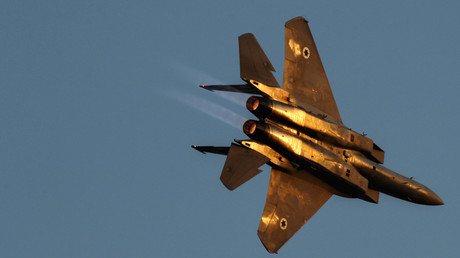
2 Israeli warplanes carried out strikes on Syrian airbase – Russian MoD
“These groups helped to kill the Syrian people, abduct civilians and use them as human shields. Three thousand shells in just three months have led to the deaths of 155 citizens and wounded 865 civilians, mostly women and children."
The letter states that there will be “serious repercussions” for Israel’s attack, reaffirming that Syria “will not hesitate to exercise its right to defend its territory, people and sovereignty in all the ways guaranteed by the Charter of the United Nations and the provisions of international humanitarian law and international law.”
The letter also called upon the UN Security Council to “condemn these blatant Israeli aggressions and to take resolute and immediate action to prevent the recurrence of such attacks.”
Israel has not commented on Sunday’s missile attack. The Russian military said on Monday that two Israeli F-15s had targeted a Syrian airbase in Homs on Sunday night. Five of the eight missiles launched were intercepted before they reached their target, according to the Russian military. Lebanon has confirmed that Israeli warplanes had breached its airspace.
READ MORE: 'Nothing off the table' in Syria: Trump promises decision on US military action within 24-48 hours
The strike came just hours after US President Donald Trump vowed that there would be consequences for the Syrian government, following accusations that Damascus was responsible for an alleged chemical attack in Douma, Eastern Ghouta.
Trump surprised his military advisers last week after he said that he wanted to “get out” of Syria. Administration officials later clarified that there would be no immediate withdrawal but that Trump was opposed to keeping troops in the country long-term.
Moscow has warned that any military action taken in response to the unverified chemical attack would be “absolutely unacceptable” and could lead to “dire consequences.”
April 9, 2018
Washington (CNN) President Donald Trump said Monday he will make a decision as early as this evening on the US response to what he called an "atrocious" chemical weapons attack on civilians in Syria and warned that he will hold the responsible parties accountable.
"We cannot allow atrocities like that. Cannot allow it," Trump told reporters on Monday during a Cabinet meeting as he warned that "nothing's off the table." "If it's Russia, if it's Syria, if it's Iran, if it's all of them together, we'll figure it out and we'll know the answers quite soon"
The Syrian government and Russia have vehemently denied involvement in the attack and accused rebels in Douma of fabricating the chemical attack claims in order to hinder the army's advances and provoke international military intervention.
"I'd like to begin by condemning the heinous attack on innocent Syrians with banned chemical weapons," Trump said. "It was an atrocious attack, it was horrible. You don't see things like that as bad as the news is around the world, you just don't see those images."
"We are very concerned, when a thing like that can happen, this is about humanity. We're talking about humanity. And it can't be allowed to happen," he added.

 As I wrote two weeks ago, the Syrian crisis is only in its beginning stages. https://www.paulcraigroberts.org/2018/04/17/crisis-beginning-stages/ The assault on Syrian military positions last night, apparently a US/Israeli operation, is evidence that the crisis continues to develop. https://www.timesofisrael.com/resonant-syria-strike-suggests-coordinated-us-israel-message-to-russia-and-iran/
As I wrote two weeks ago, the Syrian crisis is only in its beginning stages. https://www.paulcraigroberts.org/2018/04/17/crisis-beginning-stages/ The assault on Syrian military positions last night, apparently a US/Israeli operation, is evidence that the crisis continues to develop. https://www.timesofisrael.com/resonant-syria-strike-suggests-coordinated-us-israel-message-to-russia-and-iran/
















